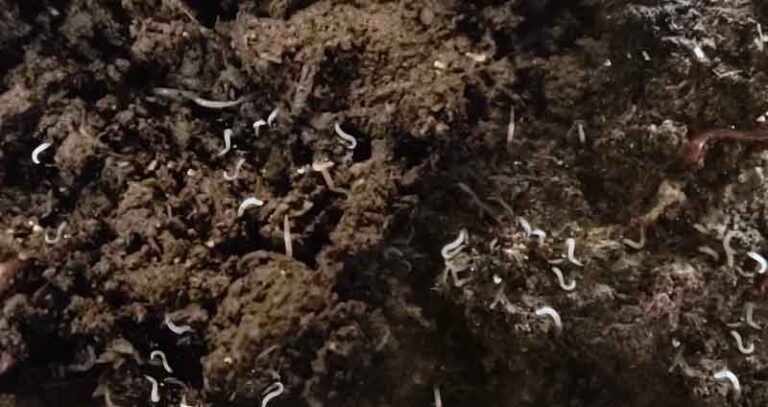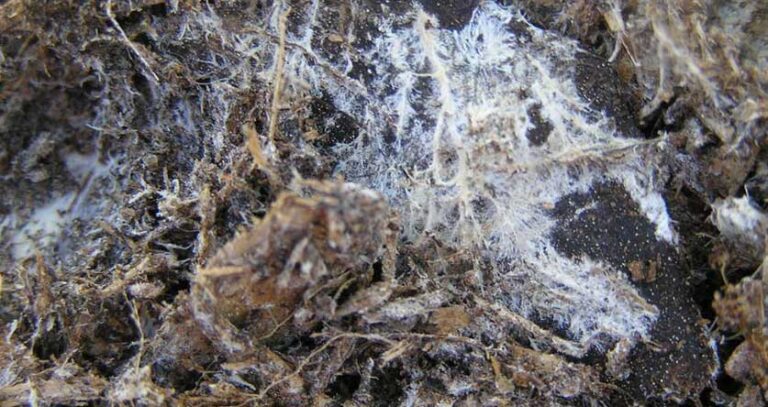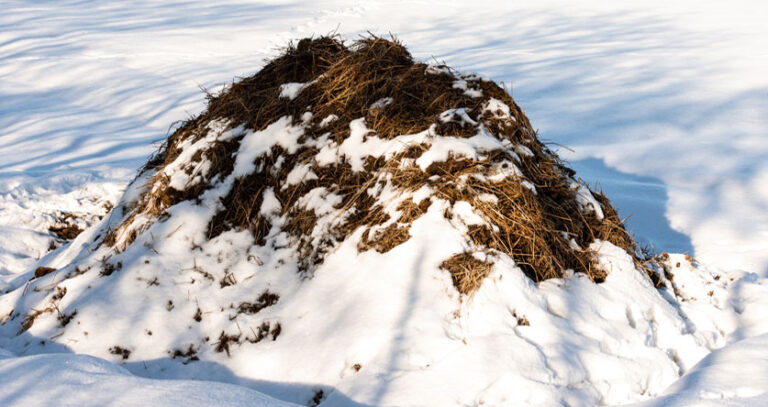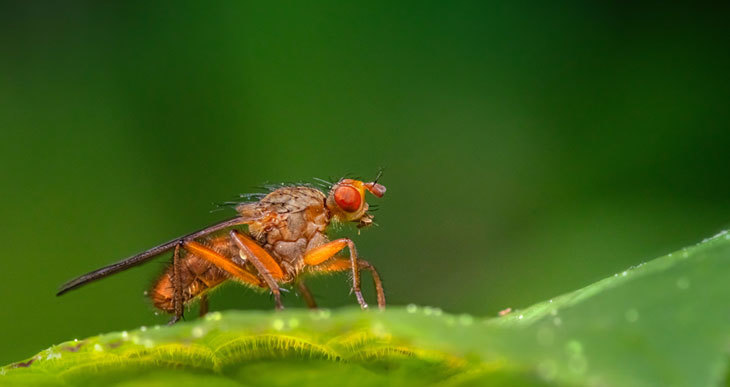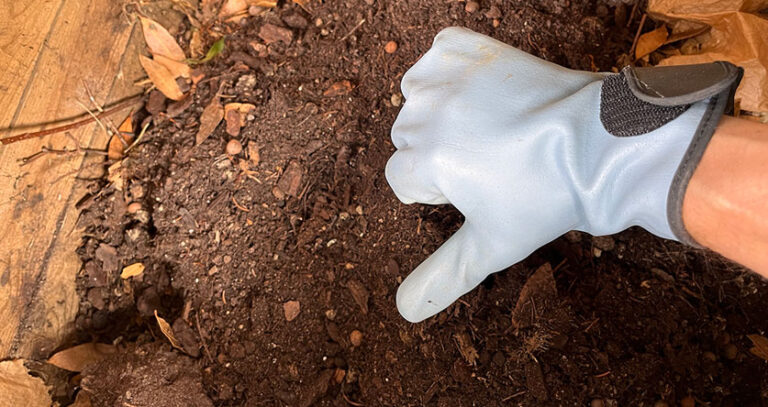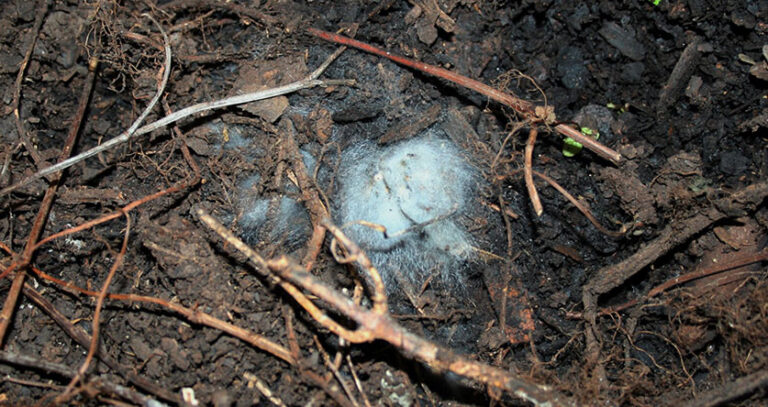Can Compost Catch Fire? (The Surprising Truth)
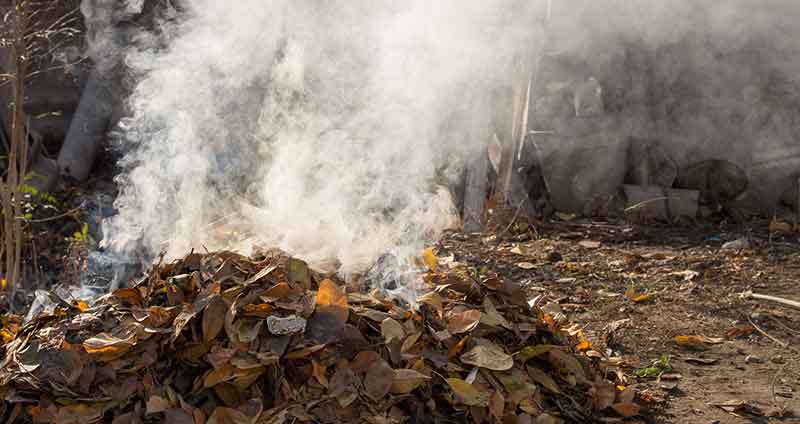
It’s getting hot!
You didn’t expect your compost pile to reach such high temperatures. So much so that you’re beginning to get worried that it might combust into flames!
People new to composting may have concerns about fire risks.
So should you really be concerned?
There are several types of composting, but only one method has the potential to cause a fire.
Let’s examine the myths, the risks, and the reality about compost catching fire!
Compost Fire
A compost pile has the potential to get hot enough to smolder. If the conditions are right and an ignition source is nearby, the compost can catch fire. But combustion is an infrequent occurrence since most compost piles do not get hot enough.
Nevertheless, fire prevention requires correct management of the pile.
Any serious gardener, especially gardeners growing food crops, will at some point investigate creating their own compost. Homemade compost is a method to turn your garden waste into a cost-saving valuable resource and peace of mind about what your compost contains.
It’s essential to understand the mechanics of a compost pile and the potential risks, of which fire is one small cause of concern.
Understanding the composting process to prevent risks from becoming a problem can affect your decision on the placement of the compost pile and your management of the process.
Can Compost Start A Fire?
Compost can start a fire but only under rare conditions. Several factors need to combine for compost to actually catch fire. Nevertheless, it is a possibility.
The first and most important question we need to address is whether compost can indeed start a fire or not. And you might want to take measures to prevent this risk from becoming a reality in our composting process.
Essentially, there are two main types of composting:
- Hot composting
- Cold composting.
Cold composting is simply piling organic materials in a pile and letting nature and time take their course to decompose the material. This process takes a long time and does not destroy diseases and dangerous microbes that may be present in the organic plant matter.
As the name suggests, this process happens at cool temperatures.
Hot composting is the preferred method for most gardeners because it is a much faster process, and the heat purifies the compost, limiting the spread of undesirable organisms and diseases.
Hot composting is the only composting method that generates enough heat to cause the potential risk of fire. While compost fires are a possibility, this is an extremely rare occurrence, especially if you manage the pile correctly.
Can A Compost Bin Catch Fire?
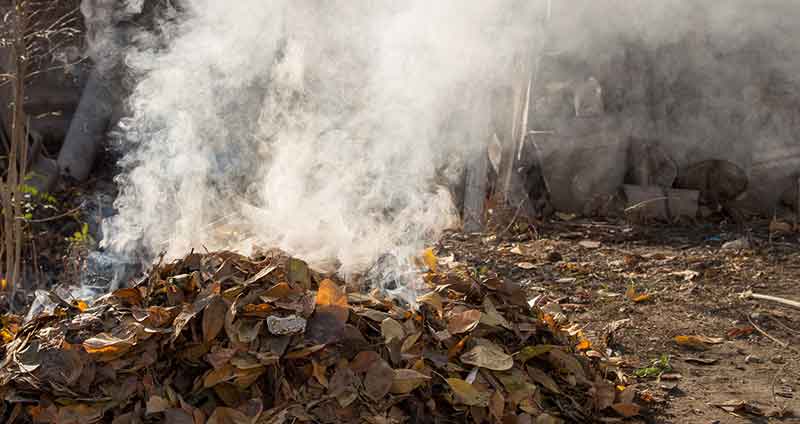
We have spoken about the possibility of a compost pile becoming hot enough to cause a fire, but what about a compost bin?
The heat inside a compost bin can become hotter than a compost pile. This is because the compost bin retains most of the heat generated by the compost. The heat is compounded if the compost bin is stored in direct sunlight.
If the composting process inside the bin is very active, the heat can be significant.
Placing dry plant material on top of a hot compost pile can result in the dry material catching fire. Once again, this is rare and will generally only be a risk in a poorly managed compost bin. The risk can increase in extremely hot weather.
Can Compost Piles Spontaneously Combust
While there is a small risk of compost causing a fire, the cause of the fire is not spontaneous combustion!
The definition of spontaneous combustion is something bursting into flames for no apparent reason. However, suppose there is a compost fire. In that case, there is always a reason, and it is usually neglect or poor management of the process.
Spontaneous combustion is the term often used to describe how a compost pile catches fire, but the process is more correctly described as auto-ignition when the right conditions in a pile are present.
How Does Compost Catch Fire?
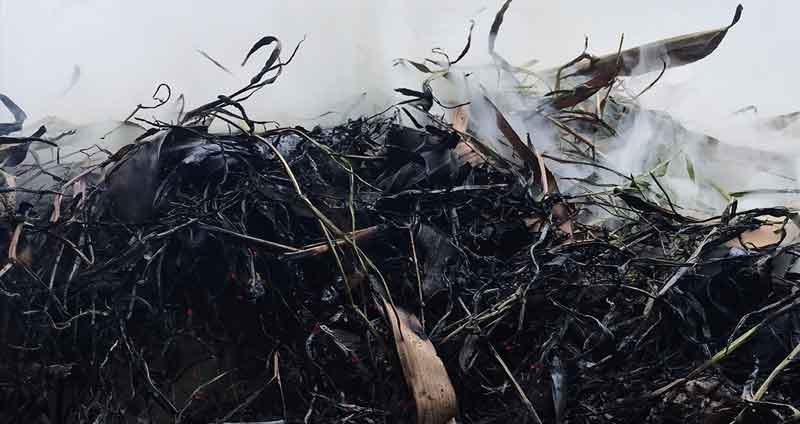
Compost will only catch fire if the decomposing material reaches temperatures where the compost material begins to smolder and the upper layers of the compost have started to dry out.
While the smoldering may not cause the compost to catch fire if it is moist enough, it could ignite dry material placed on top of the compost, especially if the dry matter has a resinous composition, such as pine needles.
Smoking Compost Does Not Always Mean Smoldering Compost
Compost piles can generate enough heat to turn the moist air in the compost into visible water vapor. This “smoke” often emanates from the compost in a smoke-like manner, leading people to believe the compost is smoldering.
It is most commonly seen on cool mornings or evenings. It is not smoke but rather the warm moist air escaping the pile and mimicking smoke. The principle is the same as your breath being visible in the cool morning air. This “smoke” does not mean your lungs are on fire!
Read Why does compost steam for more about this phenomenon.
So don’t panic!
The warm moist air escaping the compost and looking like smoke does not mean your compost is about to burst into flame!
When Is Compost A Fire Hazard?
Compost is a fire hazard when the pile has been neglected. It’s also a risk when new, dry material is placed on a hot pile and when the compost is located close to a building.
Weather conditions can also contribute to conditions that can cause a compost fire. For example, a sudden hot, dry spell in the weather can cause the internal temperature to increase significantly and dry out the outer layers of the compost.
These conditions could potentially produce the “perfect storm” of conditions leading to a compost fire!
How Hot Can A Compost Pile Get Before It Catches Fire?
Compost needs to reach significantly high internal temperatures before the compost begins to burn or for the compost to ignite other material.
The internal temperature of the compost would need to reach temperatures of between 300°F to 400°F (150°C to 200°C) to be hot enough to result in combustion.
The temperature in a hot compost pile typically reaches between 115°F and 160°F or 46°C and 71°C. Under normal conditions, this temperature range is insufficient to result in a fire in the compost pile.
How To Put Out A Compost Fire?
Compost can catch fire, even if it is rare, so how do you deal with a compost fire?
Compost contains organic materials and no plastics, fuels, or electricity, which makes dealing with a compost fire pretty straightforward. The best way to deal with a compost fire is to douse the compost pile with water.
This would not be advisable if the fire has spread to adjacent areas where other combustibles may be present. However, at this point, it is no longer just a compost fire, and the fire department should be summoned to deal with the blaze.
How To Prevent Compost From Catching Fire?
The best way to prevent the compost from becoming a fire hazard is to practice proper compost management.
Compost should be kept moist, limiting the possibility of the internal heat causing the organic matter to smolder.
Each time you add a new layer of compost ingredients, you should also be adding water.
The compost should be turned over at least once a week. Turning distributes the heat evenly throughout the pile, dissipates some of the heat, and prevents hot spots from forming within the compost.
Conclusion
Managing a compost pile is not difficult or very time-consuming, making it easy to keep your compost pile under control properly.
While compost is a small fire risk, it is significantly reduced by proper maintenance.
Don’t let this rare occurrence put you off from starting your own composting activity!
The benefits of homemade compost far outweigh the limited risk of a compost fire!


